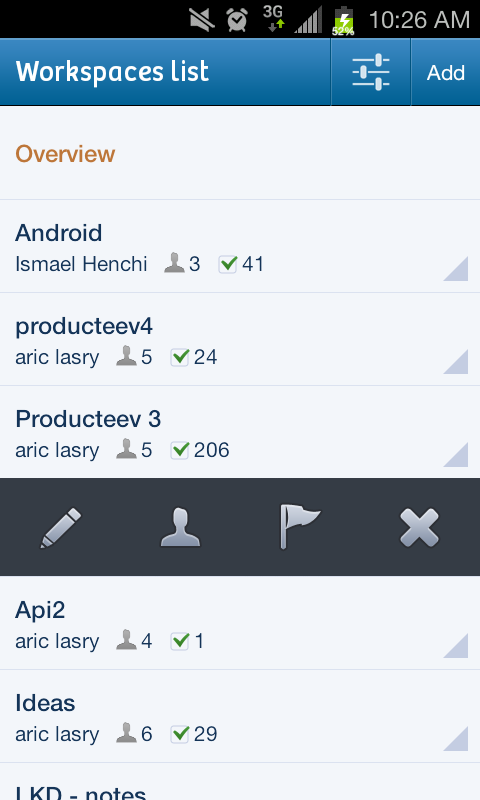
#Producteev app pro#
However, I think the Pro subscription is priced quite fairly at $25 per year, even without offering student discount rates. The iPhone and iPad version of the service’s app is done quite nicely, though practically unusable without a Pro account: It doesn’t automatically keep your account in sync and lets you only sync manually once in 24 hours. dates before they can’t be accomplished and therefore shouldn’t show up in some views. What’s lacking as well is the possibility to set start times for to-do items, i.e. In fact, they don’t support reminders at all, – not even time-based ones – so you always have to check your to-do lists on your own, even for very important tasks. Due to the lack of location-based notifications, iOS Reminders are still the best option in my rare usecases for such a feature, but I feel like there might be an opportunity for RTM’s approach at some time. The service provides a great variety of ways to structure your tasks, as the only one of the three including the possibility to attach them to locations. However, it turns out to be pretty powerful if you adapt to it. Nowadays, its web interface looks a bit old-fashioned at first sight. RTM can be seen as the pioneer when it comes to web-based to-do management: It has been around since 2005 and I even have had an account there for some years, though I didn’t actively use it. Let’s take a look at the pros and cons of those three and how they compare with each other… Remember the Milk This lead to the major contestants from my research: Remember the Milk, Producteev and Doit.im. What I didn’t check were features for collaboration, sharing and assigning of tasks as I have no usecase for that at the moment. Another basic requirement was the availability of an iOS app for mobile usage. Since Linux versions of desktop apps are often not available, services which don’t offer a web interface for desktop usage (primarily OmniFocus) didn’t come into consideration for me. I want to use and sync the tasks across all of my devices, so a cloud-enabled service seemed like the way to go. Simple to-do list programs with due dates like Wunderlist or iOS Reminders therefore aren’t the right thing. What I was looking for is a service that follows basic GTD principles and lets me structure my tasks by a variety of data types without forcing me into a stringent, “religious” GTD workflow. While this worked out in general, I felt like I could be more relaxed and productive with some technical support.

When it comes to task management, I didn’t have a sophisticated workflow up to now: I kept most things in my head, in busy times I would write to-dos down on a piece of paper and I kept a Simplenote list of more long-term tasks which I don’t want to forget (mostly filled out of panic when stressed and never actually done).


 0 kommentar(er)
0 kommentar(er)
